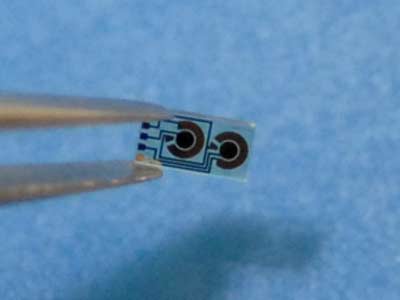With the work we are doing on cell circuitry technology and Quantum; these implants will become more and more seamless in all living things.
A biosensor developed in Clemson University, South Carolina, funded by the U.S. Department of Defense, will be able to transmit information regarding blood lactate and glucose levels of a wounded soldier or of other injured patients. The biochip will be implanted in the patient’s body for a short time and will wirelessly transmit the levels of lactate and glucose to the medical staff.
The biochip, sized 2mm x 4mm x 0.5mm, is a dual sensing element coated with hydrogels to prevent it from being rejected by human tissue. The sensor has the ability to transmit life saving readings to the medical personnel. The implantation of the chip will only be temporary, although long term biochip implants are also being tested and may be used as a precaution in some cases.
Blood glucose and lactate levels are very important for medical staff in the first stages of dealing with a trauma patient. These measurements can imply what the oxygen level in the patients’ blood is and can indicate the overall metabolic state of the patient. The blood lactate level is sometimes used to determine whether or not a trauma patient can survive surgery. Getting these measurements in real time can help the medics in a hospital or out in the field make decisions much faster and by doing so will help save lives.









Comments are closed.